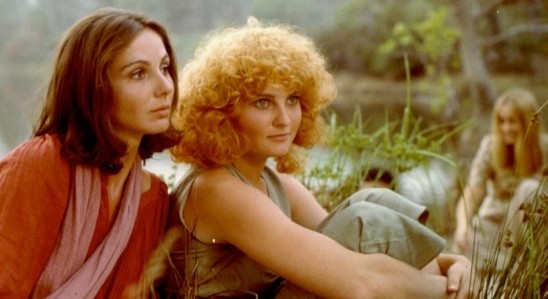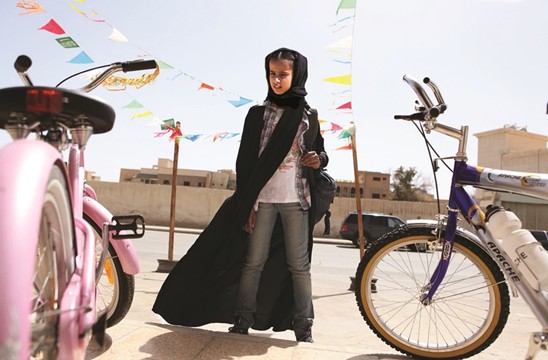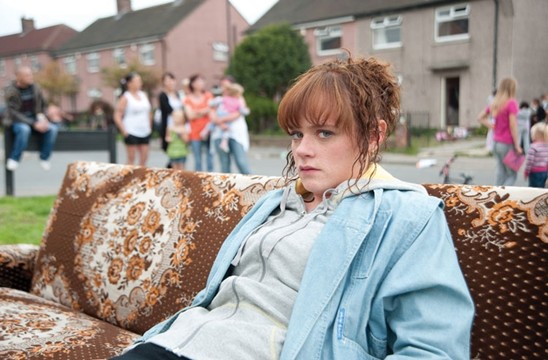
In 2014, just 12% of the main characters in the 100 top grossing films at the US box office were women, and they represented only 30% of all speaking characters. Only 7% of the top 250 films at the US box office were directed by women. Kathryn Bigelow was the first, and is still the only woman in the more than 87 years of the Oscars to win Best Director.
In response to these alarming statistics, since February the Gulbenkian in Canterbury has been screening a film season entitled Fifty Years of Feminism, a partnership with the cinema and the film department at the University of Kent. Professor of Film Studies Elizabeth Cowie observed that cinema and feminism both arose at the end of the nineteenth century in 1895 and was moved to mark the relationship between the two.
The selection of films in this season is designed to prompt the audience to think about the progress of feminism and women’s rights, and the changing landscape for women both in society, and on film, throughout the 20th century.”

The University of Kent reaches its half-centenary this year and as part of its celebrations has funded a series of events organised by the Radical Women: Fifty Years of Feminism at Kent project, including a symposium on feminist activism in Kent and of course the feminist film season. The project celebrates the past and continuing work of feminists at the University of Kent in research, scholarship and activism.
As Elizabeth progressed with the idea, her first challenge was to think about what we mean by feminist film. “I quickly decided that the season would be broadly woman-centred, with key films – both fiction and documentary – mainly made by female filmmakers that address the issues and politics of being women and exploring stories of women as workers, as wives and lovers;daughters, sisters and mothers and the constant struggle for an equality that meaningfully recognises difference.”
As with any thematic season the wealth of material presented a curatorial challenge. “There are so many wonderful films that explore female identity, and this season could only accommodate ten! While there are still far too few films made by women in general, there are such fantastic contemporary female filmmakers, and it has been exciting to see concurrent programming at the Gulbenkian that includes so many related films – new releases such as Wild, and The Falling and Mommy, all playing at the Gulbenkian in the coming months.”

For Professor Cowie, the link between the films in her season and the newer releases that the Gulbenkian play in their main programme is fascinating.”What has especially pleased me is how relevant the films in the season remain. In the newer films, I’ve also been really glad to see the new confidence to declare feminist concerns in cinema, and also in critical writing and blogs.”
The increased interest in feminist concerns in film has meant that the season has provided an opportunity for the university to exploit their links with the Gulbenkian to reach new audiences for academically focused film programming.The Gulbenkian has long housed an arts cinema alongside its theatre, with which academic staff have been involved in programming and introducing films and events. The season has been selected to include the widest possible audience, not just students and academics,” Cowie explains.

However, this meant making some tough decisions about the diversity of her selection. “I’d have liked to screen examples of silent cinema by women – certainly Germaine Dulac’s superb surrealist and feminist film The Smiling Madame Beudet from 1923 and groundbreaking works of of early Hollywood like Dorothy Arzner’s Christopher Strong, or Ida Lupino’s (who was born in Britain with connections to Kent) The Hitch-Hiker. The season slants towards British work, so I’m really sorry I couldn’t include Julie Dash’s superb and radical Daughters of the Dust (Dash’s film is though currently on screen in Tate Film’s exciting LA Rebellion: Creating a New Black Cinema season), or films by Chantal Akerman, the great Marguerite Dura’s, the contemporary films of Claire Denis, or Margarethe von Trotta’s Hannah Arendt, or the wonderful Iranian women film-makers – the list just goes on and on!”
Having dedicated her career to furthering discussions around feminist film theory, Cowie’s final selection, whilst not a comprehensive reflection of the depth of her knowledge, certainly demonstrates her ardent passion for the subject. Each film is special to me. Andrea Arnold’s Fish Tank and Clio Barnard’s The Arbor are films I really love for the complex ways in which they each address young women and their intimate struggles with family and identity. Agnes Varda’s One Sings and the Other Doesn’t is a wonderful portrait of female friendship and a profound celebration of femininity and feminism. Todd Haynes gorgeous melodrama Far From Heaven not only also references the Hollywood woman’s film and the clear inspiration of directors such as Douglas Sirk, but shows that feminist and woman-centred films can be made by men, with Haynes interested in drawing out the contradictions posed by issues of family, desire and race for both his male and female characters as they navigate life in a repressive society. I am also really pleased to be able to screen The Song of the Shirt, the 1979 film which is cinematically radical and politically complex in its investigative rethinking of the history of women’s work.

As the film season hits its half way point, Cowie is more convinced than ever that showing films in the context of feminist curation is a fiercely political act. As long as the inequity between men and women remains in work, family and representation, the politics of feminism remain important. Should our stories – of men and women – only be told in films made by men? Do we not need stories of women, too, achieving in the world, to reflect and inspire?”
Looking into the future, she hopes that a similar season might be curated at the Gulbenkian, but this time hopes that an equity between male and female filmmakers will have been established so that such a season needn’t be labelled as feminist film, but simply “a retrospective of the plethora of the cinematic riches of the twentieth century.”

